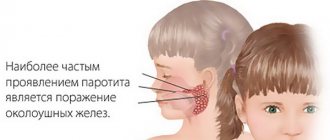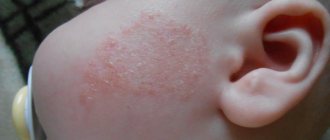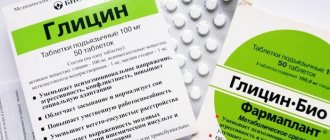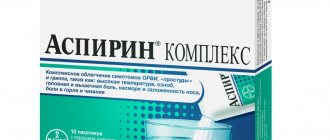How dangerous is a cold for a nursing mother? Against the background of a decrease in a woman’s body’s defenses after childbirth, overwork, lack of sleep and other reasons, the disease can be more severe. The main danger is complications arising from the addition of bacterial flora. If you do not promptly treat, there is a risk of developing pneumonia, bronchitis and inflammation of the ENT organs (sinusitis, otitis media, tonsillitis). These diseases are treated with antibiotics, which will lead to a temporary or permanent cessation of lactation. A cold in a mother while breastfeeding can provoke an exacerbation of chronic diseases. Moreover, not only those associated with the upper respiratory tract. Also, the danger of an untreated infection lies in its sluggish course. Then you will have to take medications much longer, the harmful effects of intoxication on the mother’s body and medications on the child will increase.
Is it possible to breastfeed during a cold?
Several decades ago, this was considered an indication to stop breastfeeding. But in 1989, the WHO refuted this opinion. When you have a cold, breastfeeding helps protect your baby from illness and develops his immune system.
Together with mother's milk, the baby receives the necessary antibodies to fight infection. The nutritional composition provides it with all the necessary substances for the structure of body cells, including those providing protective functions. Therefore, under no circumstances should you stop breastfeeding if you have a cold.
Attention! It is unacceptable to boil mother's milk for the purpose of sterilization. This destroys all the beneficial components contained, primarily the antibodies to the pathogen.
A cold is not a reason to stop breastfeeding
Can a newborn get sick?
The incubation period of a viral infection lasts from several hours to several days. In this case, a person becomes contagious even before the first symptoms appear. In close contact with the mother, especially during breastfeeding, the pathogen is transmitted to the newborn.
The main method of infection is airborne. A medical mask will help reduce the likelihood of infection by protecting your baby from droplets of saliva and nasal secretions. It is also important to wash your hands as often as possible. After all, when you cough, sneeze, or blow your nose, germs densely populate the used napkins, handkerchiefs, and hands.
Symptoms of the disease do not always appear in infants. If mother's milk contains a high level of antibodies, feeding is done on demand, the baby is not very small, or this is not the first case of acute respiratory infections, then there may be no signs of infection in the child.
List of treatment rules
In order to reduce infection to zero, it is recommended to follow a few simple rules:
- organize the treatment process in such a way that a certain amount of time passes between taking the medication and direct contact with the baby (in most cases, the maximum concentration of the drug in the blood is recorded 1.5-2 hours after administration);
- Feeding intervals should be increased to 4-5 hours (formula or age-appropriate complementary foods are used for supplementary feeding);
- during the period when the main phase of treatment takes place, the mother should carefully monitor the child’s condition;
- Natural feeding should be stopped if the baby reacts negatively: rash, itching or swelling appears.
What foods cause colic in breastfed babies?
If treatment involves taking antibiotics, then for this period it will be necessary to switch the child to formula. You need to continue expressing milk. To improve the microflora, the pediatrician may prescribe a course of probiotics for the child.
If a woman manages to catch a cold 3-6 months after the start of feeding (mature stage of lactation), there is no need to abruptly stop the feeding process. After consulting with your doctor, you will be able to choose the optimal schedule. The reason is that the mother may experience stress, as a result of which the milk will disappear partially or completely.
Important! A woman should not independently refuse medications prescribed for treatment, as this action can lead to various complications.
Ventilation reduces the number of bacteria in the air
What medications are allowed?
After the consultation, it will be clear whether the mother gets sick while breastfeeding or whether the baby will get sick. In most cases, a common cold or runny nose does not harm the health of the newborn. There are drugs that are approved for use without restrictions during breastfeeding, but their inclusion in the recovery program must be carried out by a doctor. If a cold occurs while breastfeeding, a specialist decides how to recover and treat it.
Protecting your baby when your mother has a cold
ARVI involves airborne infection, so it is worth taking care of additional protection for the baby.
Yes, we remember about antibodies in breast milk, but questions of general hygiene will not be superfluous.
Here are a few important points that need to be observed if a nursing mother has a cold:
- It is important to continue feeding so that the baby’s immunity is strengthened.
- When in contact with the baby, you can use a protective gauze bandage or a special medical mask, which is changed every 2 hours (there is no 100% evidence that this method works effectively, but it is better to play it safe during the acute stage of the disease).
- A huge number of viruses get on your hands (when you close your mouth when coughing or wipe your nose with a handkerchief). Therefore, wash your hands often with soap and dry with a towel specially designated for you.
- Don't kiss your baby or cough in his direction.
How to help your baby grow healthy from the first days of life, how to reduce colds to a minimum, we discuss in the online course Healthy Child: Workshop for Mom>>>
On a note! The first days of the development of a cold are accompanied by weakness and headache. It is good if there are relatives and close people around the nursing mother who help her care for the child.
What can and cannot be done for colds in infants?
Treatment for a baby's first cold should only be prescribed by a doctor. Self-medication is unacceptable! For children of the first year of life the following are strictly contraindicated:
- tea with honey and raspberries, any cough syrups - they can cause allergies;
- instilling breast milk into the nasal passages does not help fight the disease, increases the growth of the bacterial population and leads to inflammation;
- rubbing with essential oils can cause a rash;
- steam inhalations and mustard plasters cause burns to the skin and mucous membrane of the respiratory tract.
How to quickly cure a cold in a child? You need to follow the recommendations of a specialist and use only those products prescribed by your doctor. In the complex treatment of ARVI in children, many doctors use Derinat in the form of nasal drops. It acts in several directions at once:
- fights infectious agents,
- increases immune defense,
- Due to the reparative effect, it restores the mucosa and improves its barrier functions, prevents the addition of a secondary infection and accelerates recovery.
Can mom take medications?
When treating a cold for a nursing mother, many drugs are prohibited, so any use of medications must be agreed upon with a therapist. When self-medicating, there is a high risk of harming yourself and your child. So what can be treated?
Relevant: Diarrhea and fever in an adult: causes, how to treat
Antiviral drugs are used to treat acute respiratory viral infections and acute respiratory infections, but it must immediately be clarified that most drugs are prohibited for a mother who is breastfeeding. Among the approved drugs, the most effective ones should be highlighted:
- "Aflubin";
- "Grippferon";
- "Oscillococcinum"
If a high temperature rises during illness, there is a need to take antipyretic medications.
These medications, of course, are undesirable for a woman whose baby is breastfed, but it is necessary to reduce the temperature, especially if it lasts for a long time, but before you start taking it, you should try the folk recipe - wiping the bite with a weak solution, and the procedure must be done before until the mark on the thermometer drops to 37 and 5 degrees.
If this method turns out to be unpromising, you can take special syrups for babies:
- "Panadol";
- "Nurofen"
Important! High body temperature can contribute to complete loss of breast milk.
When treating a runny nose, a woman can use sea salt-based nasal decongestants.
If a woman is afraid to resort to drug treatment, then you can pay attention to traditional medicine. It is only worth noting that folk remedies have one drawback: the mother and, accordingly, the child may experience an allergic reaction.
How to treat a mother
Okay, we’ve sorted out the GW. But how to be treated? Is there a compatible treatment? This article will not contain any treatment prescriptions or guidelines for action. Adequate treatment in each specific case is prescribed only by a doctor. Therefore, it is important to consult a doctor in time if you feel unwell , so as not to lose sight of serious diseases (for example, sore throat) that require specific medical prescriptions.
Now about the main thing.
Most medications prescribed for ARVI are compatible with hepatitis B!
But, unfortunately, both some doctors and the information in the package insert say that the lactation period is a contraindication. But in reality, they say so in the package insert because the pharmaceutical company did not conduct studies on breastfeeding women to prove otherwise and is now obliged to write so. Fortunately, there is now more than one research center that is engaged in targeted studies of drug safety during pregnancy and lactation. The study is quite detailed and comprehensive: this includes the pharmacokinetics of the drug, metabolic features, and the effect on mother and child.
Information on drug compatibility is publicly available. You can check the medicine for compatibility with breastfeeding yourself, but it is better to seek help from any breastfeeding consultant, since each specific case has a number of nuances that are important to consider (for example, the age and condition of the child). Some databases also contain information about safe alternative medications if the one you are looking for actually has contraindications. A breastfeeding consultant will not prescribe, adjust or cancel prescribed treatment, he will only give you information that you can discuss with your doctor.
Now a little about some of the most commonly used drugs to relieve cold symptoms and their compatibility with breastfeeding.
Pain and fever
Ibuprofen. The mechanism of penetration of ibuprofen into breast milk has been well studied. A small proportion of the medicine (about 0.6%) of the dosage taken by the mother penetrates into the milk. The dosage given directly to the child is many times greater. It is only important not to exceed the daily allowance of 3.2 g.
Paracetamol. Just like ibuprofen, it passes into milk in a small amount, several times less than the dose of the medicine given directly to the child. Do not exceed the total amount of 4 g per day.
Thus, ibuprofen and paracetamol are safe means for relieving pain (including sore throat and earache) and reducing fever in breastfeeding women.
Aspirin. You need to be very careful with this drug ! Although this drug penetrates the brain in small quantities, it can nevertheless cause Reye's syndrome (liver damage) in a breastfed child. Use by a nursing mother, if this particular drug is necessary, should be carefully considered and agreed with the doctor.
Nasal congestion
Oxymetazoline. There are not enough detailed studies on the safety of this substance. But it is believed that a small amount gets into milk due to its topical application and rather weak absorption. Use during breastfeeding is permitted in case of very severe nasal congestion, but on the condition that the drug is used for a very short period of time (no more than 3 days) and the daily dosage indicated in the package insert is not exceeded.
Saline solution is the optimal and safe solution for relieving a runny nose if a woman has a cold while breastfeeding.
A sore throat
There are many sprays and lozenges that are compatible with breastfeeding. You can ask a breastfeeding consultant to check the compatibility of the active ingredients. Such common components of drugs as dichlorobenzyl alcohol and amylmetacresol are considered safe when applied topically and in compliance with the dosage.
Important! Colds while breastfeeding (this applies not only to a sore throat) should not be treated with medications containing iodine (sprays, rinses, lubricants). Iodine is very well absorbed by the mucous membrane and perfectly enters milk, and unlike other substances, its concentration does not decrease over time, because the release of iodine ions from milk is difficult. In addition, it takes a long time to be eliminated from the body and therefore has a cumulative effect. Inadequate concentration of iodine ions in breast milk is not beneficial for the baby and may affect his thyroid gland.
Antibiotics
Separately, I would like to say about antibiotics . Taking these medications is not a death sentence or an indication for even temporary weaning of a child. There is a fairly small list of antibiotics that are truly incompatible with hepatitis B, but many of them have safe alternatives. Therefore, before you start taking it, you should find out more about the drug as soon as possible.
ARVI in most cases does not require any special drug treatment and goes away on its own . Therefore, it is important to differentiate ARVI from another disease in time and, if possible, not to burden your body with unnecessary drugs.
When should you absolutely not feed?
If the body is severely intoxicated, breastfeeding should be stopped, as well as when taking strong medications to treat inflammation. If you continue to feed, there is a risk of harm to the baby's health.
If the temperature during illness does not rise above 38 degrees, then you need to continue feeding for the benefit of your baby, but if the temperature rises higher and higher, then the quality and consistency of mother's milk deteriorates significantly.
It is forbidden to feed the baby if the woman is taking antibiotics to treat the disease. Thus, if this type of drug enters the body, it can cause complications in the form of dysbacteriosis, which will negatively affect the child’s health.
Continuing feeding is also prohibited in case of the following diseases:
- Infectious diseases that occur in an acute form, since toxic substances can get into the milk;
- Purulent mastitis;
- It is forbidden to feed the child after surgery if anesthesia was used, as well as strong medications, including antibiotics.
Is it possible to feed at a fever?
Previously, it was believed that if a mother is 38 or above, then the milk can “burn out” and cause real harm to the child. But modern research proves that nothing like this happens in a woman’s body, and milk does not change its properties when body temperature rises.
Another thing is that at a high temperature a woman can feel very bad, and then feeding the baby itself causes serious discomfort. Therefore, you should not endure it - the temperature during breastfeeding can and should be reduced with antipyretic drugs such as Nurofen or Paracetamol.
What drugs should not be used?
Nursing mothers who do not interrupt feeding their baby during illness are generally prohibited from using the following medications:
- affecting lactation;
- increasing the risk of allergies in an infant;
- toxic;
- unstudied - studies of the effect of individual drugs on this category of patients are quite rare, so you should not take risks by taking such drugs;
- complex - they contain a wide range of substances, some of which can be dangerous for young mothers.
Please note that:
- even safe drugs can cause undesirable reactions when used for a long time;
- It is better to treat with tablets rather than injections, because in the second case, there is a greater likelihood of a negative effect of the drug on the baby;
- taking medications by the mother at night is less dangerous for the newborn;
- It is better that the feeding time does not correspond to the period of peak content of active medicinal substances in the mother’s body.
Safe way to treat cough
If you do not want to take absolutely no cough medications, you can use inhalations. You can carry out them as many times as you like, and the effectiveness is the same as from treatment with traditional means.
You can put regular saline solution in the inhaler. It has a beneficial effect on the respiratory tract and treats wet cough. For a dry cough, you can use Ambrobene syrup.
Remember that for inhalation the dose of the drug should be much less than when taking the drug orally.
What harm can they do to the baby?
- Analgin - anaphylactic shock, changes in the blood.
- Phenobarbital - suppression of the kidneys, liver, effect on the blood, nervous system.
- Codeine - drug dependence, constipation.
- Paracetamol - take no more than 3 days, because it is harmful to the liver.
- Bromhexine is a complex drug.
- Oil drops and vasodilators - use no more than 3 days.
- Sulfonamides and tetracyclines are toxic and can cause bleeding.
- Macrolides - take with caution, because may cause dysbacteriosis.
- Theraflu, Coldrex, Fervex are drugs with unstudied effects on nursing women.
Treatment of colds while breastfeeding
A young mother makes sure that nothing harmful gets into her baby’s milk. When treating colds while breastfeeding, only gentle measures should be used. It is not recommended to use strong antibiotics or medications that have a whole list of contraindications. Moreover, you should not use those medications that clearly state that you cannot take them while breastfeeding.
Non-drug remedies can help with treatment - a cold is not as scary as it might seem while you are sick with it. Can be used:
- aromatherapy and foot baths;
- herbal teas and decoctions;
- onion nasal drops;
- inhalation;
- breathe over the potatoes the old fashioned way.
Personal prevention will be required: it is recommended to wear a gauze bandage when feeding and interacting with the baby, wash your hands more often and ventilate the room. For a child, the likelihood of becoming infected through airborne droplets is much higher than during breastfeeding.
You cannot self-medicate with medications. All medications must be agreed with your doctor. If the mother requires complex treatment, then the doctor himself will recommend switching to artificial feeding and will also tell you when to return the baby to the breast after a bottle. In most cases, this will not be necessary: the less often the mother uses artificial feeding, the stronger the health of her child becomes.
Symptoms
A cold during breastfeeding is no different from an acute respiratory viral infection at other times. And as with any disease, the sooner you recognize symptoms and begin treatment, the faster you will recover. Signs of a cold include:
- runny nose and nasal congestion;
- sore throat and cough;
- temperature increase;
- feeling of weakness, loss of appetite.
With proper treatment, improvement will occur within 2-3 days, and full recovery can be expected within a week. It is worth remembering that not all conventional methods and means of treating ARVI are suitable, so we will consider suitable and prohibited techniques.
Medications
Modern pharmaceuticals offer a large list of products that can be used during breastfeeding to treat colds during breastfeeding. They can all be divided into groups according to purpose.
Antiviral
Among the drugs to combat cold viral diseases, there are many that are compatible and incompatible with breastfeeding.
Evidence-based medicine ridicules the effect of antiviral drugs and considers them only to defraud the population of money. Therefore, whether to drink or not to drink them is a personal matter for each of you.
A group of drugs based on recombinant human alpha interferon (Grippferon, Viferon) is safe during breastfeeding.
You can also consider homeopathic remedies that can be used during lactation Aflubin, Anaferon.
Treatment of a runny nose
Medicines that help reduce swelling of the nasal mucosa will help a nursing mother cope more easily with a cold.
Important! Vasoconstrictor drops can be used as a last resort if the nose is severely stuffy. They cannot be used for more than 3 days.
These drugs are not recommended for use by mothers with newborn children.
Nazivin, Otrivin, Vibrocil - this is what they write about them on the website https://www.e-lactancia.org/ “Avoid overdose and do not use for more than 3 days: like any other medicine that causes adrenergic action, when absorbed it can cause side effects (vascular hypertension, irritability, cardiac arrhythmia) in both mother and baby.”
Relevant: The use of Tiloron-SZ as part of complex therapy in patients with mild forms of COVID-19
Medicines to relieve sore throat
Rinsing the cavity with solutions of Chlorophyllipt, sea salt, and Hexoral will help reduce pain in the throat.
Throat sprays Hexoral and Tantum-Verde also have a local effect. Lozenges, such as Strepsils, will help temporarily reduce pain.
Cough treatment
If you have a cough, you should definitely consult a doctor to rule out bronchitis and other lung diseases.
It is allowed to take medications whose active ingredient is ambroxol. Read more in the article How to treat cough while breastfeeding>>>
How to check the compatibility of prescribed medications with breastfeeding?
Very often I come across the fact that the doctor prescribes medicine for the mother, but the instructions say that it is not allowed while breastfeeding. The mother either stops feeding the baby or does not undergo the necessary treatment.
Let's remember that there are now many medications that are compatible with breastfeeding. Many manufacturers do NOT conduct large-scale research on breastfeeding women and the compatibility of the drug with breastfeeding; it is easier for them to write in the instructions - it is prohibited.
In this case, always check each appointment yourself on the website https://www.e-lactancia.org/
In the search bar you need to enter the active substance (not the trade name of the drug!) in English and you will get the most complete opinion about the drug and breastfeeding.
Watch my video for more details:
Homeopathy
Homeopathic remedies do not have proven effectiveness, but many use them against colds, due to their greater safety during breastfeeding than conventional medicines. Traditional homeopathy is prescribed only by a homeopathic doctor after carefully examining the patient and taking an anamnesis. Pharmacy remedies for colds prescribed by therapists are Oscillococcinum, Aflubin, Delufen.
Antipyretic drugs
It is recommended to lower the temperature when it rises above 38.5°C. For colds, it has a healing effect, so with lower readings it is advisable to be patient, ensuring that you have sufficient drinking regimen. Higher values are also undesirable because fever can negatively affect breastfeeding.
Such drugs are used once and cannot cause much harm to the baby. But it is better to know exactly which medications are allowed during lactation and use them. It is important that there is only one active ingredient, since complex drugs increase the risk of adverse reactions in infants.
Paracetamol and its analogues - Panadol, Cefekon, Efferalgan - are considered the safest, subject to dosage and duration of use. It is also permissible to use Ibuprofen and drugs based on it - Nurofen, Ibufen. Many of these medications are used to treat children under 1 year of age.
On a note! When the temperature rises, it is advisable to use warm water rubdowns. In most cases, they give better results than any medication. But you can’t add alcohol or vinegar to the water!
Folk remedies
Treatment of colds with hepatitis B using traditional methods is most often used. Warm foot baths, steam inhalations over herbal decoctions or boiled potatoes in their skins help well. Herbal tea with raspberries, honey, lemon is allowed to be drunk in moderation, provided that the baby is not allergic to its components. You can have cranberry juice, raspberry compote. When coughing, rubbing the back with melted goat, goose or badger fat helps.
Attention! When using a folk remedy or any other, it is necessary to carefully monitor the condition of the baby.
An excellent way to cope with a cold is inhalation with herbs.
What drugs should not be used?
The annotation for the medicine always indicates whether it is permissible to use it during breastfeeding or not. There are medications that cannot be used due to insufficient experimental data. They can be prescribed by your doctor, but the dosage and duration of use should be strictly observed.
Toxic, allergenic, complex products are incompatible with lactation. The list of drugs prohibited during breastfeeding includes:
- Analgin;
- Aspirin;
- Citramon;
- Codeine;
- Theraflu and the like;
- Antibiotics;
- Bromhexine;
- Naphthyzin;
- Remantadine;
- Arbidol.
How to treat a cold for a nursing mother
When breastfeeding, a woman is selected for medications that do not contain harmful components.
Antiviral drugs
Antiviral drugs can be used to combat acute respiratory infections, however, many of them do not cope with their task due to only the psychological impact on a person. The following drugs are prohibited during lactation:
- Ribavirin;
- Arbidol;
- Remantadine.
For colds, homeopathic medicines can be prescribed, but their effectiveness is questionable. Among the medications in this group, names such as Aflubin, Anaferon and Oscillococcinum can be distinguished. Some medications contain alcohol, which can negatively affect the quality of mother's milk. In addition, homeopathic preparations contain herbal components, so they can cause allergies in the child.
For viral colds, medications that contain human interferon alpha are often prescribed. The most effective medications of this group are Viferon and Grippferon. Antiviral drugs are recommended to be used at the very beginning of the pathology, when viruses are on the mucous membranes. When the virus enters the mouth, antiviral drugs become ineffective and can interfere with recovery.
Antipyretics
With an increase in body temperature and fever, women during breastfeeding are allowed to take Paracetamol. If the baby is already 3 months old, then it is possible to bring down the temperature with the help of Nurofen. Such medicines help not only get rid of fever, but also eliminate headaches.
Important! During lactation it is not recommended to use analgesics, as they have a negative effect on the functioning of the child’s central nervous system. Acetylsalicylic acid, which can cause disruption of metabolic processes in the female body, is also prohibited. In addition, it affects the liver cells of the child’s body and increases the permeability of the vascular walls.
Remedies for runny nose
When you have a cold, it is best to treat a runny nose with plant-based drops, for example, Pinosol. In addition, sprays containing sea water are also suitable for this purpose. If a woman has severe congestion, she can use drops that have a vasoconstrictor effect. During breastfeeding, the following medications can be used to treat a runny nose:
- Salin;
- Nazivin;
- Tizin;
- Farmazolin.
Treatment methods for acute respiratory viral infections in breastfeeding women
It is important not to let the infection take its course, and to begin active treatment measures immediately, without waiting for the condition to worsen and complications to form. It is important to consult a doctor, since self-medication, especially by taking certain medications, can harm both the mother and her baby . In the treatment of ARVI, both traditional, non-drug methods and medications traditionally used in the treatment of colds are acceptable.
Among the non-medicinal methods, drinking plenty of warm drinks will be useful - tea with lemon, raspberries, honey or milk with butter, warm still mineral water. You need to rest as much as possible and spend more time in bed during periods of illness and fever. Cupping and mustard plasters have no proven effectiveness, and are currently not recommended for the treatment of nursing mothers. Foot baths with mustard and taking a bath with injuries will be useful for a runny nose and lack of fever.
Antiviral drugs for acute respiratory viral infections in nursing mothers
Important. To date, there is not a single proven and effective remedy against ARVI viruses, with the exception of treating influenza with drugs that act on the influenza virus (Tamiflu, Relenza).
The use of drugs such as arbidol, ribovirin, kagocel and others for ARVI in nursing women is not indicated.
Their effectiveness and safety in nursing have not yet been confirmed, although they are widely advertised and promoted by manufacturers. Their effect on infants and their complete safety have not been studied, therefore only certain drugs are used strictly as prescribed by a doctor. It is also dangerous to use such widely used drugs as Immunal, Aflubin - which can cause allergic reactions in infants, digestive disorders and anxiety.
Interferon inducers, used both topically in the form of nasal drops and systemically - anaferon, gripperon and similar agents, can help in treatment. They are used strictly according to the instructions and under the control of the baby’s condition. Viferon or kipferon in candles will be useful, stimulating your own immunity to fight the virus.
Antibiotics for the treatment of acute respiratory viral infections in nursing mothers
Antibiotics are not used in the treatment of ARVI; they do not affect the reproduction and activity of viruses, but can lead to negative reactions from the body of a woman and child due to their penetration into breast milk.
Important
Antibiotics are used strictly as prescribed by a doctor in the presence of complications or severe ARVI with high fever, which lasts 4-5 days or more, without a tendency to decrease.
Topical: Pain and burning in the chest during coronavirus, what does this mean?
Antibiotics are indicated in the presence of complications such as otitis media, sinusitis, sinusitis, bronchitis and the risk of pneumonia, strictly with the doctor's permission and taking into account their compatibility with breastfeeding. Tetracyclines, aminoglycosides and biseptol are strictly prohibited. If, for special indications, it is necessary to take antibiotics that are incompatible with breastfeeding, the child is temporarily transferred to expressed milk or formula.
Symptomatic treatment for ARVI in nursing mothers
The most basic problem is the fight against high temperature during hepatitis B.
Important. While feeding, antipyretic and pain-relieving drugs such as analgin and aspirin are prohibited; it is permissible to reduce fever only with the help of Nurofen or paracetamol strictly in the prescribed dosages and only if there are numbers over 38.5.
If you have a fever, you need to drink plenty of fluids and use physical methods of cooling - light clothing, wiping with a damp cloth and water at room temperature, cool compresses to large vessels (elbows, knees, armpits) and forehead.
Note. Rubbing with vodka, vinegar or alcohol is prohibited for nursing mothers; they lead to toxicosis and even higher fever.
To reduce the temperature, we can take linden blossom, a decoction of birch buds, chamomile tea and raspberries. The house requires frequent ventilation, low temperature in the rooms and wet cleaning, air humidification of at least 55-60%. This helps not only in reducing the temperature, but also in facilitating nasal breathing, easing sore throat and cough.
What to do at a temperature of 38?
Paracetamol is recommended as the main remedy, but in serious circumstances, take any antipyretic or decoctions of medicinal herbs that have a similar effect. These are linden blossom, currant leaves, mint, hibiscus, willow bark, raspberries, cranberry juice.
Drinking for a cold
A prerequisite for recovery. This is a way to minimize intoxication, prevent dehydration of the body, and introduce valuable components into it that stimulate natural resistance to the aggressor. You need to drink not only water, but also compotes, decoctions, fruit drinks, homemade or freshly squeezed juices (with the exception of citrus fruits, which can cause allergies in the baby).
Features of the treatment of colds in the first month after childbirth
After childbirth, a weakened body is especially often susceptible to the action of pathogenic agents, but the use of folk remedies during this period should be carried out with extreme caution. Herbal preparations can cause an allergic reaction in the baby. Honey, recommended as a panacea, can also serve as a powerful allergen. Any drugs can be used only after medical approval.
Safe traditional recipes
Let us remind you that a nursing mother cannot follow all the usual recipes. Many traditional methods can not only spoil the quality of milk, but also reduce its production. Do not overheat and use mustard plasters. As for “healing products,” many of them are allergenic, so it is necessary to monitor the child’s reaction.
Effective methods include:
- Herbal teas. They are the safest, and at the same time varied in the method of influence. For example, chamomile will help with a sore throat, and rose hips and currant leaves will provide a supply of vitamin C.
- If you have a sore throat, add 1 tsp to a glass of water. salt and soda. Mix all the ingredients, the product is ready. It will wash and disinfect your throat.
- Aloe juice is used to combat nasal congestion. Garlic juice is sometimes recommended, but it can be aggressive to the mucous membranes.
Important! Traditional recipes are based on lemon, honey, and ginger. Teas and decoctions with them are effective, but you should not drink them if the baby is allergic.
For fever and runny nose, steaming your feet is effective. Add mustard powder to a bowl of warm water, steam your feet, and wrap them in warmth. The procedure is carried out before bedtime. Don't forget to stay hydrated and get plenty of rest.
We comply with safety measures
During the height of the disease, when the possibility of infecting people around you is highest, it is important to take measures to eliminate the virus in order to protect your child and the rest of the household.
- You can involve relatives: let grandmothers, girlfriends, godparents, sisters or brothers stay with the child, and at this time the mother will take inhalations, lie quietly, or better yet, sleep.
- Wash your breasts with soap and water before breastfeeding; viruses could be transferred to them by coughing or sneezing. For the same purpose, change your underwear more often and take a shower daily.
- Ventilate the apartment several times a day, carry out wet cleaning, paying special attention to door handles, switches, telephone handsets, and TV remote controls. It is on these items that the maximum concentration of viruses and bacteria is found. Leave the cleaning to your relatives as well. Physical activity during illness is contraindicated.
- Eat from separate dishes to avoid infecting other family members.
- Wear a protective mask and do not take it off while feeding. Don't forget to change or wash it.
- Sneeze and cough into a tissue, not your fist . When we cough into our fists, viruses with droplets of saliva settle on the skin of our hands, and later we ourselves transfer them to various objects.
- When the child has eaten and fallen asleep, move him to another room, which has been ventilated before, and rest in your own room.
It is important to maintain close contact with your baby so that he does not feel abandoned: during feeding, stroke him gently, talk to him and sing songs if possible. Just remember to wear a gauze bandage.
Treating colds and breastfeeding are compatible activities today. Stopping breastfeeding will cause more harm to the child's health than a small concentration of drugs entering the child's body with milk.
Preventing colds for your baby
During breastfeeding, cold treatment will be most effective if you follow some recommendations:
- It is known that viruses are transmitted by airborne droplets, so to protect your baby from infection, you must wear a mask . And replace it every few hours.
- Ventilation and wet cleaning have a detrimental effect on viruses, so these preventive measures are useful as often as possible.
- In the fresh air and during walks, the child’s health is actively maintained. Dad, grandfather or grandmother can take the baby for a walk if the mother is sick.
- It is important not to stop breastfeeding , because with mother's milk he receives immunoglobulins and antibodies to infection, which will help protect him from the disease.
- You can use traditional methods of treatment with caution . Some components can provoke a severe allergic reaction in the baby. If there is no allergy, then folk remedies can be used in the fight against colds.
Important! Breastfeeding involves sleeping together at night for the comfort of mother and baby. However, during the period of taking sedatives or cold medications with a hypnotic effect, you should sleep separately with your child at night. Since such medications can reduce attention to the baby at night.
What does the famous doctor Komarovsky think about colds?
If a cold means signs of a respiratory viral infection: a slight increase in temperature, runny nose and cough, then it is impossible to stop the course of a viral infection with garlic, honey, or lemon. Folk remedies are used more as an option for psychotherapy, when “something needs to be done.”
At the first signs of infection, you should dress warmly, providing access to cool, moist air, frequently rinse your nose with normal saline, and drink plenty of warm fluids: teas, compotes, mineral water. When feeding, you should use a gauze mask. It is also important to ventilate the room frequently, because viruses quickly die in moving cool air.
What to do if you have a cold during breastfeeding: permitted and prohibited medications
Sick mothers are often at a loss: what to treat, what medications can be taken for a cold so as not to harm the child. Let's figure out what medications are generally prescribed for this condition:
- antipyretic. Young mothers can do everything except aspirin. The latter, even if it gets into milk in small quantities, can cause damage to the baby’s liver. Other medications are safe for infants;
- antiviral. There are dozens of their names. Some of these cold medicines cannot be taken while breastfeeding, others are not recommended, and others are considered permitted. We advise you to carefully study the instructions for the drug. If breastfeeding is indicated as a direct contraindication or it is noted that no studies have been conducted in this direction, it is better to look for another medicine;
- antibacterial: they are prescribed only in cases where a bacterial infection has joined the virus. Despite the fact that today products from this group have been developed that are safe for a nursing mother and baby, taking antibiotics for a cold while breastfeeding is strictly prohibited without a doctor’s prescription.
The best option, if your health allows, is to do without medications. A balanced diet, plenty of warm drinks, sufficiently humidified air and proper rest - this is what will help you overcome a cold in the shortest possible time.










